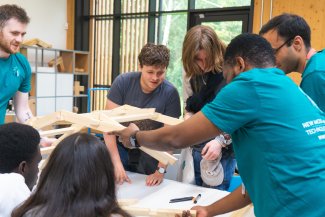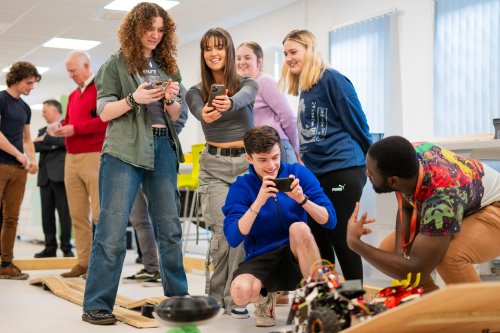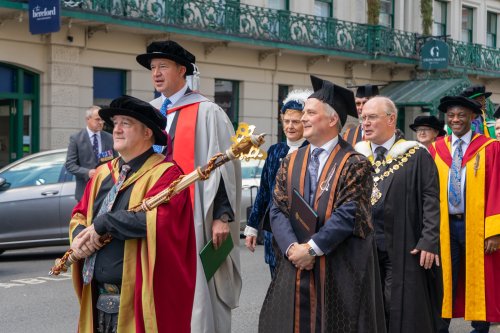Project-based learning (PBL) is a way of learning that flips the script on traditional education. Instead of sitting in lecture theatres and taking notes, students work in teams to solve real-world problems - just like they would in a job.
It’s active, hands-on, and rooted in doing - not just knowing. In project-based learning, students gain knowledge and skills by working overtime on challenges that are meaningful, practical, and often messy - just like real life.
Rather than being told what to think, you figure things out by researching, building, testing, and refining your ideas. You learn how to collaborate, how to communicate, and how to take responsibility - not just for your own work, but for your team’s success.
How is project-based learning different from traditional education?
In many universities, education still revolves around lecture theatres, note-taking, and end-of-year exams. You learn the theory, write essays, memorise equations, and - if you’re lucky - get a bit of lab time or a short placement.
With project-based learning, the theory is still there, but it’s applied from the start. Learning becomes something you experience, not something you simply absorb. It’s less about sitting back - and more about getting stuck in.
Traditional Learning | Project-Based Learning |
|---|---|
Passive learning through lectures, textbooks and exams | Active learning through projects, teamwork and real-world challenges |
Learning first, application later | Learning through application |
Focused on individual performance | Focused on collaboration and shared outcomes |
Assessment through written exams | Assessment through presentations, reflections, outcomes |
Why project-based learning matters in engineering
Let’s face it - engineering is a practical, collaborative profession. Engineers work in teams, solve problems, and respond to real-world constraints - budgets, timelines, regulations, and people.
That’s why project-based learning is such a natural fit for engineering education. It helps students:
➡️ Apply theory to real situations
You don’t just learn a formula - you use it to solve something that matters.
➡️ Build teamwork and communication skills
Because engineering is rarely a solo act - and great ideas need more than just technical skill to succeed.
➡️ Develop problem-solving confidence
You’re constantly practising how to work through uncertainty and failure - just like you will in your career.
➡️ Graduate with experience that employers recognise
You’ve already worked on the kinds of projects that happen in the real world - so when you apply for jobs, you’ve got more than grades to show.
The NMITE approach: Project-based learning from day one
At NMITE (New Model Institute for Technology and Engineering), project-based learning isn’t just one module - it’s the foundation of everything we do.
We launched NMITE because we saw too many engineering graduates leaving university without the real-world experience employers are looking for. So we set out to do things differently.
Here’s how project-based learning works at NMITE:
➡️ Real projects. Real employers.
You’ll work on challenges set by our industry partners - not just case studies, but live briefs that matter.
➡️ No lectures. No traditional exams.
Learning is active, immersive, and collaborative. You’re on your feet - solving problems, building prototypes, and presenting your thinking.
➡️ Team-based, full-time, career-focused.
You’ll study in small teams, full-time (35 hours a week, 46 weeks a year) - just like in the workplace. And you’ll graduate with skills you’ve already used, not just studied.
➡️ Work-ready graduates.
Our graduates are already making an impact at organisations like Balfour Beatty, BAE Systems, and AWE. Why? Because they arrive with the skills, confidence, and experience to hit the ground running.
Why it matters
Too many graduates leave university wondering how to turn what they learned into what they do. Project-based learning bridges that gap - and NMITE builds that bridge into every degree we offer because we’re different.
It’s not about ticking boxes or memorising content. It’s about becoming an engineer in the truest sense - a thinker, a doer, a collaborator, and a problem-solver.
👉 Curious about learning differently? Discover how NMITE’s hands-on approach can help you build your future. Explore the NMITE Difference, here: https://nmite.ac.uk/nmite-difference






